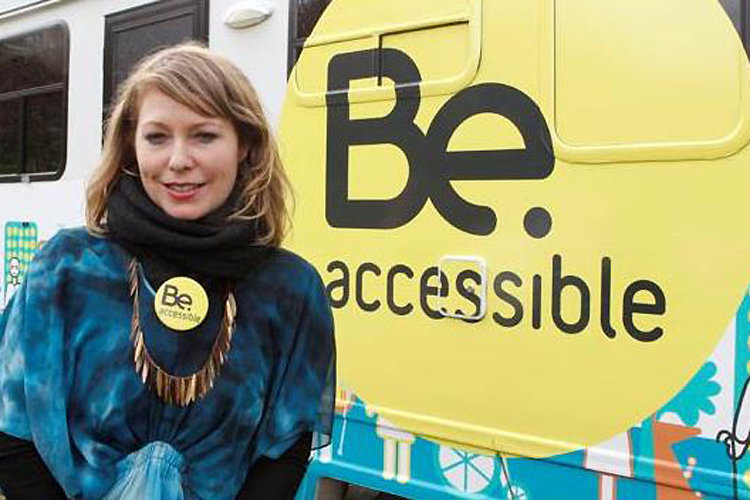Be. Institute’s founder Minnie Baragwanath shows why leaders can’t be small minded if they want to unlock innovation

The process of compiling a ‘Fab 50’ list of some of New Zealand’s sharpest business, political and social leadership talent had never, to my knowledge, been attempted in New Zealand until we hit on the idea earlier this year. We wanted to find a group of people who could not only influence but infect others with an enthusiasm for and understanding of what an accessible New Zealand would look like – a country like no other, in which every citizen can fully participate in the economy and everyone is enriched (literally and otherwise) as a result.
(At any given time, 24% of the population will identify as having an accessibility issue, which can range from the permanent, such as sight and hearing impairment and paralysis, to the temporary, such as people with infants and toddlers and those recovering from injury.)
In the process I came to discover what connects our most successful people, what qualities they possess that have allowed them to rise to the top of their field, whether it be – in the case of our disparate Fab 50 – education, public sector leadership, philanthropy, property development or something very different.
Spacious leadership
‘Spacious leadership’ is a term I recently coined to describe the type of leadership needed to effect social change in the 21st century. Each member of the Fab 50 approaches in some way this style of leadership, which is most simply described as the opposite of command and control. It requires a high-trust environment, high levels of personal commitment, and plenty of space for innovation, new ideas and risk-taking.
The spacious leader creates room for new growth and new possibilities. They do not lock things down or try to limit innovation because they are afraid of getting it wrong, and they certainly do not play it safe. Spacious leaders cannot help but think big, and ‘spaciousness’ comes to them as naturally as breathing. They know, and have seen in their own practice, that thinking or operating small breeds a culture of fear and small-mindedness.
Importantly, the spacious leaders do not always believe they have the answer. They will ask questions, and ask how they can help – which is a powerful question when it comes from the heart.
This is what both the former Waitakere City mayor Sir Bob Harvey and Craig Richardson of Wynyard Group asked me when we first met to discuss how New Zealand can become the most accessible nation in the world. Sir Bob pulled out his little black book and to see who he could connect us with, while Craig committed to making the Be. Accessible philosophy a cornerstone of his global business and brand.
Scott Pickering, the CEO of ACC, came to our offices and said, “Minnie, I am completely open to all possibilities. I believe in what you are doing and I want to lead ACC as the most accessible organisation in New Zealand. What can we do together?”
Spacious leadership also creates the conditions for others to flourish and become leaders. Shelly Campbell, the CEO of the Sir Peter Blake Trust, embodies this through her management of a vehicle that forges the space for New Zealand leaders to improve even more than they knew they could.
Sarah Trotman of AUT Business School demonstrated her commitment to the accessibility movement with the annual Business in Excellence Awards, which under Sarah’s leadership became the first awards event in New Zealand to gain a Gold Be. Welcome rating for accessibility.
My concept of spacious leadership has grown out of reading people like Peter Block and Margaret Wheatley and being in the company of wonderful leaders such as Tariana Turia, John Allen, Lesley Slade, Philip Patston, Qiujing Wong and Megan Barclay, not to mention my many colleagues.
Lesser strengths
But perhaps more potent and visceral than any of these have been the deep reflections I have made after taking on the rather public and challenging leadership role of Be. Accessible. I realised that being a leader with a disability forces you to work out your strengths and ‘lesser strengths’ early in your career. You already know you cannot do it alone so you welcome others’ help and relinquish the need to control everything. Spaciousness is also essential when working in areas of social change which by their very nature are highly complex and extremely dynamic!
These amazing New Zealand leaders are connected by one special quality: a belief in New Zealand and its people. They are not part of the Fab 50 for their own glory, but they fervently believe we can continue to make this country the best in the world, and the best place for all people to just Be. That is what drives them and what will make our vision a reality.
Minnie Baragwanath is the founder and CEO of the Be.Institute. She was appointed a Member of the New Zealand Order of Merit in the 2014 Queen’s Birthday Honours for her services to people with disabilities.




